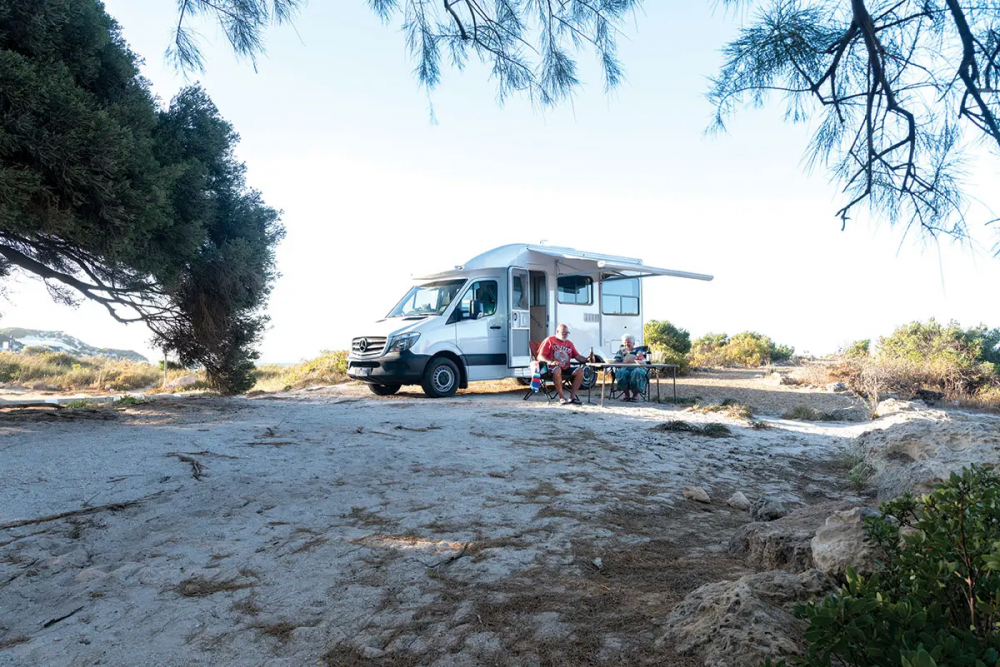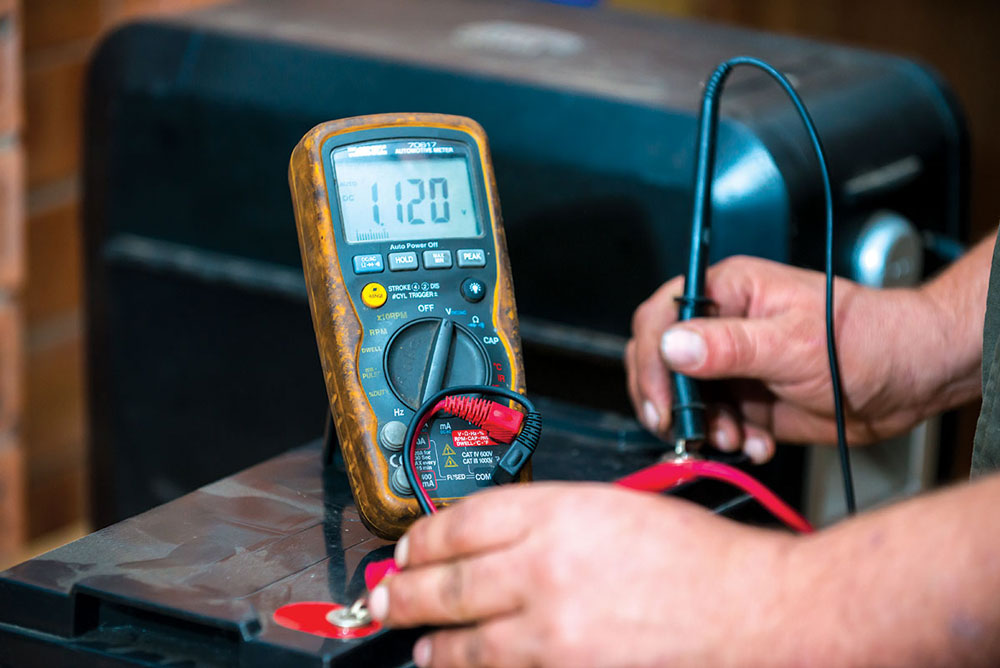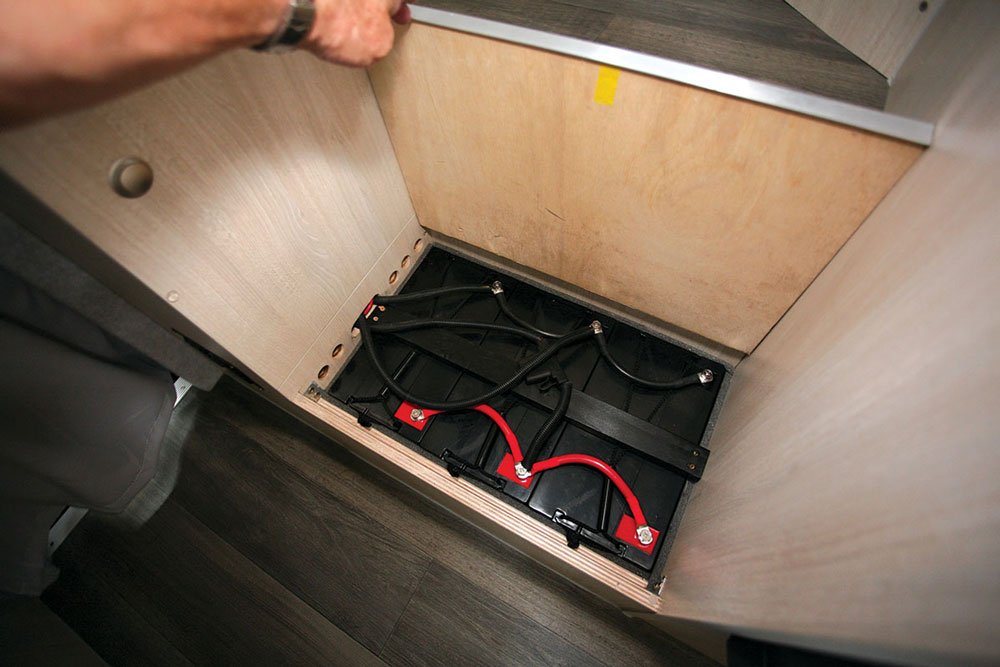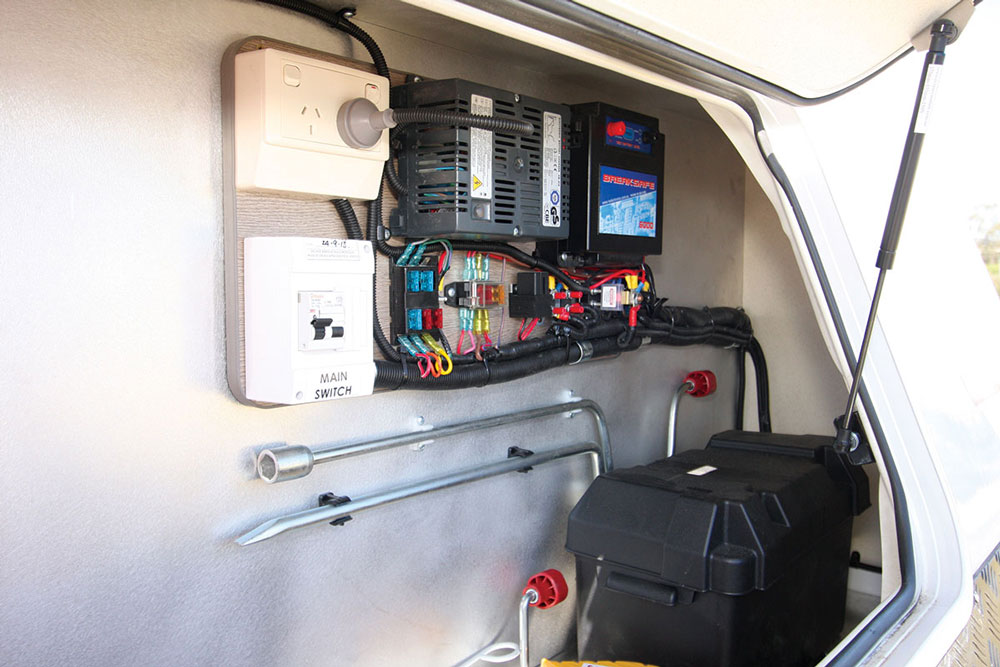
Choosing the Right RV Battery System: Types and Considerations
Explore RV battery types, from deep cycle to lithium, for efficient power on your RV adventures.
With so many different RV battery types and sizes, motorhome owners may find it difficult to understand what sets them apart. Keep reading for a basic rundown from TradeRVs.
Batteries are a major and vital component of every motorhome or RV, particularly for offroad RVs, which can spend weeks and even months away from mains power. An adequate power supply is a make-or-break factor of any trip. An exciting holiday can quickly become frustrating without the electricity to power all your gizmos and gadgets. Your RV's battery setup is paramount if you’re not parked up and connected to 240V power every night.
With the progression of technology, RV batteries have evolved to become sophisticated components of any setup. With their increasing complexities, RV owners can find the different types of batteries difficult to understand. Gone are the days of a tangle of wires and fuses pinned to a piece of MDF. These days, there is a wide range of 12V batteries to choose from, including lead-acid and AGM batteries, gel, calcium, and, most recently, high-output lithium (LiFePO4) batteries.
If you’re big into offroad touring, the type of RV battery system you choose is vital. There are so many types of RVs on the market, each with varying battery systems, that it’s crucial to be informed of all the different types of batteries and how they can affect your time on the road. Keep reading to discover the most common types of RV batteries and what sets them apart.

Deep Cycle Batteries: The Traditional RV Powerhouse
Unlike the starter battery in your vehicle — designed for fast, intense bursts of energy — your RV’s main (or ‘house’) battery/batteries are designed for much longer-term use. This is because the battery is needed to power ALL your appliances and keep them powered for extended periods. Deep cycle 12V batteries are the most common and are available in three forms: flooded, gel cell and AGM. However, remember that lithium batteries are becoming more popular by the day and are fast replacing traditional lead-acid batteries.
Reliable and Budget-Friendly Flooded Deep Cycle Batteries
Flooded deep cycle batteries are built in much the same way as conventional car starter batteries … the lead plates are suspended in wet acid, but thicker plates are used to withstand repeat cycling. Thicker plates are used because they do not buckle under extended battery discharge.
Spill-Proof and Robust Gel Cell Batteries
Gel cell batteries have plates held in an immobilised gel, making them robust and resistant to spills. Unfortunately, due to their composition, gel batteries are more sensitive to voltage spikes than other batteries and should be charged at 14.4V, requiring a dedicated charger. In terms of cost, they sit between flooded and AGM batteries.
High Performance and Low Maintenance AGM Batteries
Absorbed Glass Mat (AGM) batteries were originally developed for the military. They have an absorbed glass fibre mat suspended in an electrolyte. Like gel batteries, they are fully sealed and designed to be maintenance-free and to withstand mechanical handling and vibrations (like those you get on corrugated roads). AGM batteries are quite sensitive to heat and—of all the deep cycles—have the lowest self-discharge rate.
Lithium Batteries: The Future of RV Power
The popularity of lithium batteries has taken off like a rocket in many industries. This is due to multiple reasons; however, the prime advantage is that the output voltage remains constant even when down to 10–20 per cent of its charge. Lithium batteries are lighter and smaller than conventional deep-cycle ones and can be charged and discharged at a relatively high current.
Unlike other batteries, which can be monitored as a single entity, each cell in a lithium battery is monitored individually within the battery itself. This is because when one cell becomes fully charged, the charging current stops for all cells.
Due to their robustness and lightweight, lithium batteries remain quite expensive—especially when compared to deep-cycle batteries—and they require a dedicated, good-quality charger. It’s important not to mistreat your lithium batteries in any way, as they are more fragile than traditional batteries and more susceptible to breaking down. The protection circuit mentioned above maintains safe operation but is generally more fragile, which should be declared.

What’s the Best RV Battery For Me?
Unfortunately, we can’t answer this question for you … the power needs of every motorhome are as diverse as the travellers themselves. As mentioned above, your individual needs and camping style will determine which type of battery best suits your rig. A couple who only takes short weekend trips away to their local caravan park could probably get by on a single, small (80–100Ah) AGM battery. In contrast, a family of four that spends weeks at a time parked on a beach/bush camp with no facilities will need a much larger setup … and possibly a lithium battery.
Keep Your System in Top Condition with Regular RV Battery Maintenance

No more having to check your battery's electrolyte level every other day and constantly worrying about your supply of distilled water. These days, the only hands-on maintenance your batteries need is the removal of acid corrosion around the terminals — which can quickly be done with a toothbrush and baking soda/water mix. Due to their advanced nature, most RV batteries don’t need any physical maintenance and can be taken care of using the correct chargers and power management systems.
Ready for Adventure?
Find your dream van online at OnlyVans.com.au! We have great deals on caravans for sale including used caravans and caravans from private sellers. You can also find motorhomes for sale, camper trailers, and pop top caravans. No matter how you like to travel, we've got you covered.
This article was written by the Editorial Team at TradeRVs.com.au, now powered by OnlyVans.com.au.
Found your perfect purchase? Let’s make financing just as easy!
Work with Australia’s best-reviewed finance broker for a great deal and a stress-free experience. With 2,500+ glowing Google reviews, you can trust you're in good hands! See what our happy customers say in Credit One reviews, or jump right in and crunch the numbers with our handy loan repayment calculator. Your ideal financing solution is just a few clicks away!